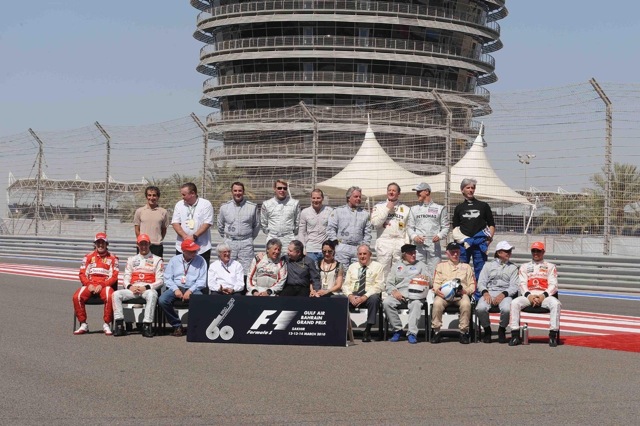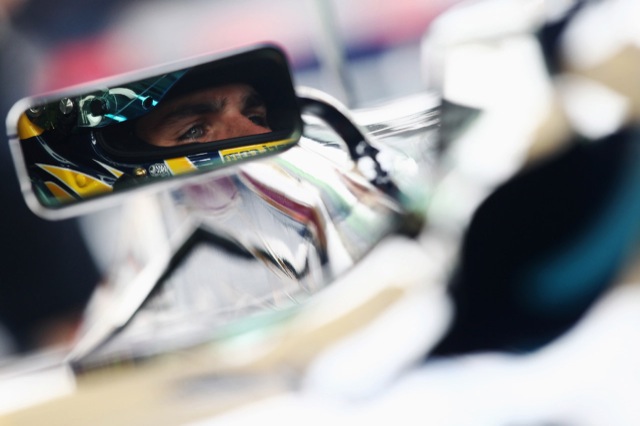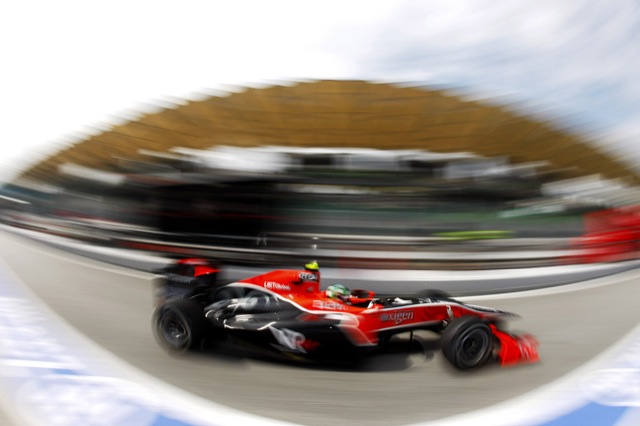
We may potentially have four teams vying for the world championship this year, and with a strong field of drivers looking competitive, combined with the extra races and a change in points system, a number of Formula One records are looking set to fall this season. Furthermore, with the return of Michael Schumacher, some records held by the German could be extended even further out of reach from the youngsters hoping to one day emulate the sport’s statistical best.
Previously in Formula One, a victory on Sunday earned you either 8, 9 or 10 points. This has been the standard since the championship formed in 1950 and only this year have we seen a fairly dramatic change. An increase to 25 points for a race win mimics MotoGP, and the 150% rise will surely see the ‘most points gained in one year’ record fall, despite the fact the points may be more evenly shared between the top-four. Adding to this, more teams and drivers are now able to score points, the system now including the top-ten finishers as opposed to the 5, 6 and 8 in previous seasons.
The current record more most constructor points earned in a single season was 2004, with the mighty F2004 powering the Ferraris of Michael Schumacher and Rubens Barrichello world championship success. Ferrari totaled 262 over the course of the year. Schumacher took the driver’s title with Barrichello just behind in second, and it was this year that the most number of points gained for a driver was set, with Schumacher’s tally of 148 becoming the new benchmark. 2004 featured 18 grands prix, one less than the current 2010 season.
If the Bahrain Grand Prix result is anything to go by, the records look set to be maintained by Ferrari, both team and driver. However, after only one race it would be naive to presume this. Looking at a more modest result, like that of McLaren who only collected 21 points from a P3 and P7, even they could exceed 262 by the thirteenth round assuming they consistently hit an average take-home of 21pts/race.
The maximum able to be scored under the 2004 points system was 324 (for a constructor) and 180 (for a driver), which highlights the dominance of Ferrari’s campaign. For 2010, the maximum achievable for a constructor is 817 and 475 for a driver.
In terms of overall total points, the record positions are likely to remain the same as of the current teams, only Ferrari, McLaren, Williams and Renault feature at the top of the list. All four are fairly well-spaced so it is unlikely there will be any change in the order. For the driver’s though, Michael Schumacher has already begun to extend his lead at the top of the table, but Rubens Barrichello and Fernando Alonso are currently in P4 and P5 respectively, the former on 608 the latter 602. There is a strong possibility this could change at the next race in Australia.
Looking closer at the driver’s points earned in one year, we will also see an improvement in the average points gained per race, such is the difference between the two systems. Of the current grid, Michael Schumacher leads in P2 with an average of 5.49 points per race entered. At the first grand prix of the year, Schumacher scored 8 points, so he is already improving on this. Lewis Hamilton rest on 5.11 while Fernando Alonso averages out at 4.27 per race. Looking at the Spaniard’s form in Bahrain, you’d have to suggest that the double champion will be making some in-roads into Hamilton’s lead over him.
How poignant it was then, to have most of the surviving world champions in Bahrain, all celebrating 60 completed years of the world championship and sharing a photo call with those who on the eve of the 2010 season, may be about to rewrite the record books.
Statistics from Wikipedia: Drivers and Constructors.
Image © Foto Ercole Colombo.




















The new points systems are stupid, quite frankly. There is no sense in changing them other than allowing 9th and 10th places to score points now. The new system is worth proportionally less for a win than the old ones, so it does not reward winning at all.
Also I had a look at how ‘fair’ the systems were on my blog over the years and it turns out that the new system is no fairer than the one it replaces. The new system was supposed to make it fairer for the new teams – what a joke when you consider how far away any of the cars are from a top 10 finish!
//Gavin